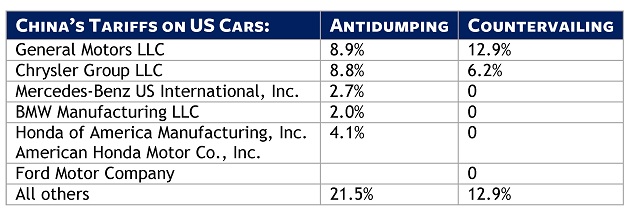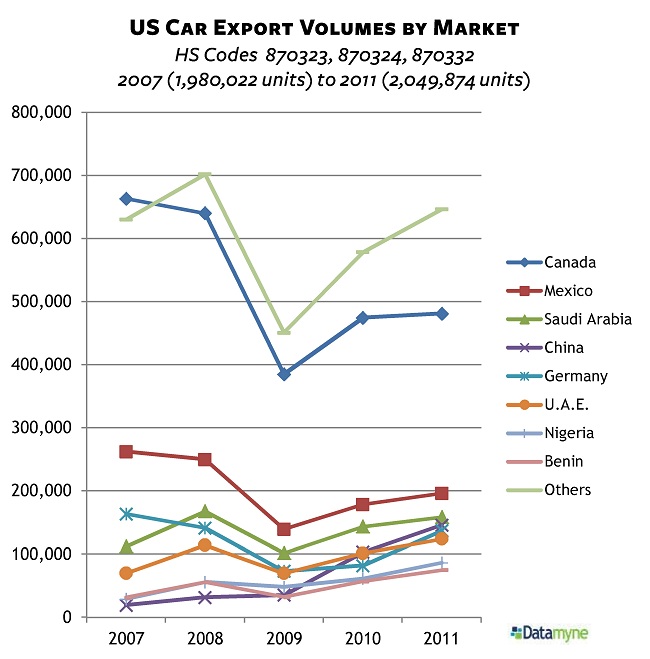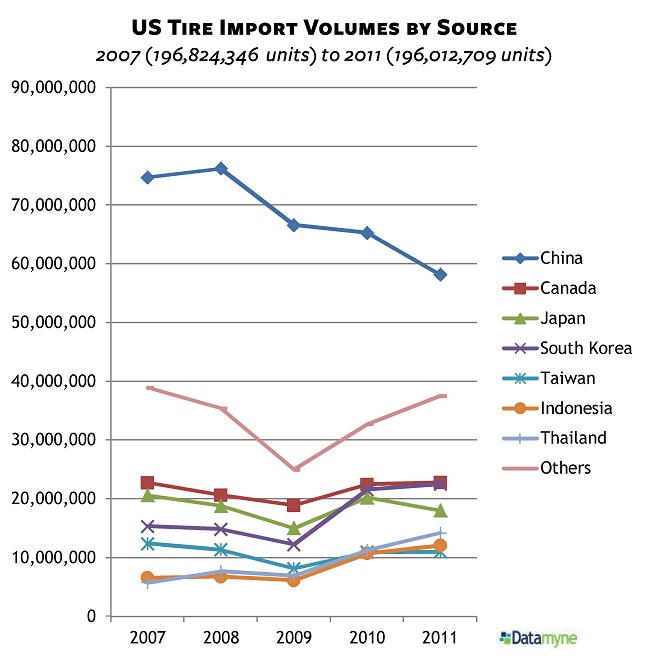US files WTO complaint against Chinese tariffs on American-made automobiles
The Obama Administration has challenged China’s antidumping and countervailing duties on cars manufactured in the US with a request for “dispute settlement consultations” at the World Trade Organization. The countries now have 60 days to talk about it – if they can’t reach agreement, the dispute goes to a WTO panel.
It’s the latest tit for tat in the two countries’ fractious trading relationship.
In 2009, the US signaled a new direction in trade policy by slapping a 35% tariff on tires from China. The US Trade Representative said that Chinese tire imports had tripled and China’s share of the American market had jumped from 4.7% to 16.7% between 2004 and 2008.
In response, China initiated investigations into cars and SUVs imported from the US. In May 2011, China’s Ministry of Commerce issued determinations that the American-made vehicles had indeed been dumped on China and had benefited from US government subsidies. Accordingly, China imposed antidumping and countervailing tariffs, waiting until December 14, 2011, to make them effective.
We took note of General Motors’ prominence in the penalty box and recalled that in March 2010 GM announced it was selling more cars in China than in the US (see Miss Swaziland’s “Dubai”). GM sold 2.5 million cars in China last year and its first-half sales in that country broke records. So, the tariffs will hit GM pretty hard, right?
Not really. GM, reports CNNMoney, is the leading automaker in China. GM’s exports of American-made cars into China represent less than 0.5% of its overall Chinese sales. Ford exports only Canadian-made vehicles to China.
According to the trade data (see below), the US exported 145,752 cars to China in 2011 – that’s 7.11% of total US car exports, up from under 1% in 2007. The tariffs cover about 80% of US exports, says the Obama Administration. That’s roughly 117,000 cars supplied by Chrysler (which has no assembly lines in China and sent 38,373 vehicles there in 2011), the US subsidaries of Mercedes-Benz, BMW, and Honda, along with “all others.”
No barrier to sales is welcome, but the Chinese tariffs seem to be more bark than bite.
The US curbs on Chinese tires that started it all also seem to have been more about sending a message than achieving results. Recall that the aim had been to protect the US domestic industry (and US jobs). The tariffs did depress Chinese exports – to the benefit of tiremakers in South Korea, Indonesia and Thailand.






